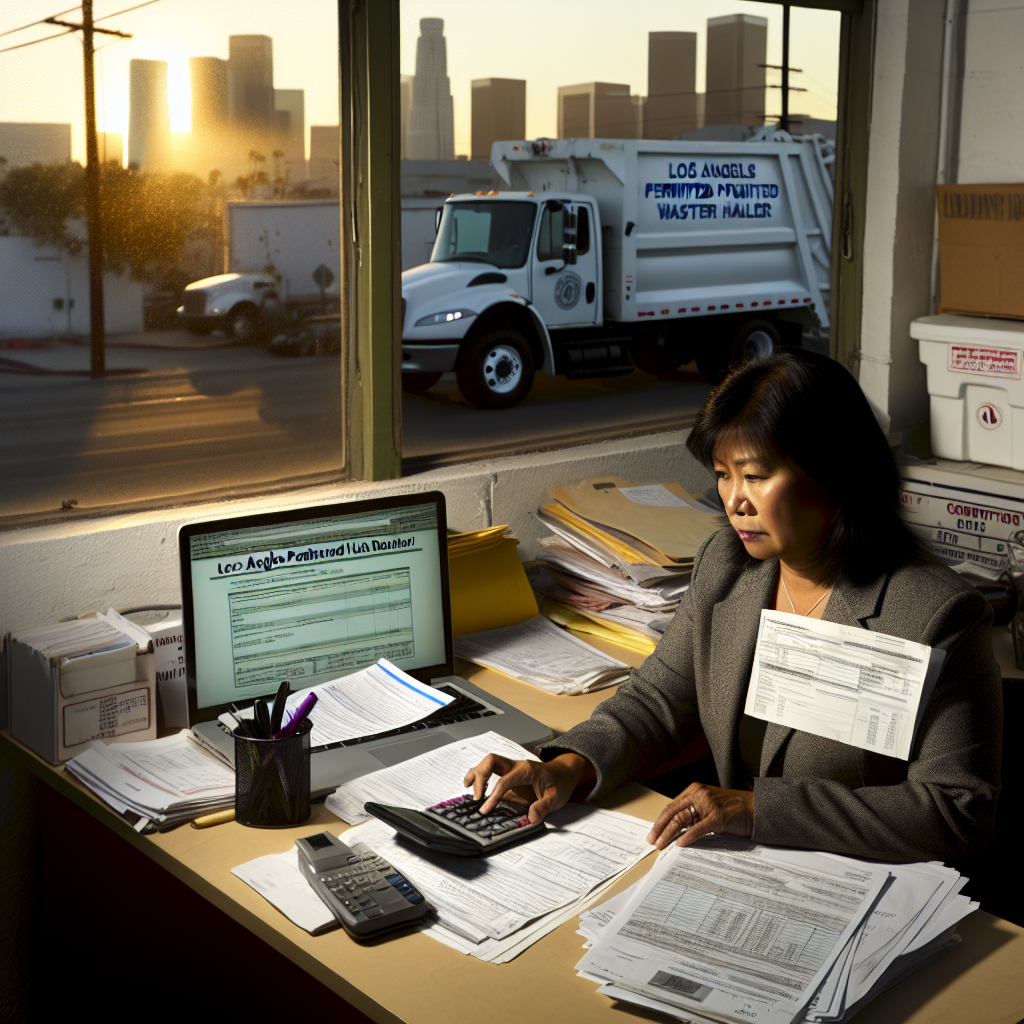Why this update matters for roll-off operators and C&D fleets
The City of Los Angeles has refreshed its official “List of Permitted Waste Haulers,” confirming which companies hold valid AB 939 compliance permits to collect and transport solid waste, recyclables, organics, and construction and demolition (C&D) debris generated within city limits. The current roster is dated October 5, 2025, and is marked “Valid Permit On: October 5, 2025,” signaling it’s the list crews should rely on before dispatching equipment into the city.
Names on the list range from regional roll-off providers to demo specialists and large open-market brands. Notable entries include D & W Trucking, Inc. (PER-19-017) out of Inglewood and IRS Demo/Interior Removal Specialist, Inc. (PER-09-059) in South Gate—both frequently seen on C&D jobs across the basin. You’ll also spot Construction & Demolition Recycling, Inc. (South Gate) and numerous roofing and demo outfits that self-haul debris during projects.
Who needs a City permit—and the key rules you’re certifying to
Under Los Angeles Municipal Code (LAMC) Section 66.32.1, any person or company that collects, removes, or transports solid waste—including C&D, source-separated materials, or co-mingled recyclables—generated within the City must hold an AB 939 Compliance Permit from LA Sanitation & Environment (LASAN). There are limited exceptions (e.g., small incidental self-hauling under 1,000 tons/year and some homeowner self-haul), but most roll-off and demo trucking work requires the permit.
The same code section sets operating conditions that affect day-to-day fleet practices:
- Deliver C&D loads to a Certified C&D Waste Processing Facility (or document rejections from at least two certified facilities if directed elsewhere). Keep rejection slips on file for three years.
- Submit reports as required by LASAN—quarterly gross receipts and tonnage data—and maintain supporting documentation (tickets, invoices, project addresses) for at least three years.
- Clearly mark bins with your company name and phone number when used within the City.
- For organics, transport source-separated materials to qualifying recovery facilities in line with state SB 1383 regulations referenced by the City’s code.
How to verify your status—or get permitted
LASAN’s online portal supports new applications and renewals for the AB 939 Waste Hauler Permit and provides the quarterly reporting workflow. The same portal points to the City’s current permitted-hauler list, making it the fastest way to confirm your company—or a subcontractor—you plan to hire is in good standing. For assistance, LASAN lists program contacts and phone numbers directly in the portal.
Operational takeaways for dispatch, compliance, and billing
- Check before you roll: Before setting a box or accepting a C&D haul in Los Angeles, confirm the company moving the material appears on the City’s permitted list for the date of service. The latest roster is stamped with today’s date (October 5, 2025). Screenshot or download the list for your job file.
- Document your destinations: C&D and organics loads must go to appropriate certified or high-diversion facilities. Keep scale tickets and, if applicable, rejection slips for three years to satisfy audits.
- Mind your labels: Ensure every bin used in the City is clearly marked with your firm’s name and phone number—inspect decals after washes and repairs.
- Report on time: Build quarterly AB 939 reporting into your billing cycle to reconcile tonnages and gross receipts, reducing scramble at quarter-end and avoiding compliance flags.
Risk of operating unpermitted
The City treats unpermitted collection as a misdemeanor. Violations of the solid waste hauler permit requirements carry potential fines up to $1,000 and/or up to six months in county jail per offense. Beyond the legal exposure, jobs can be delayed if inspectors request paperwork you can’t produce.
Bottom line
For owner-operators and fleet managers servicing construction, demo, and temporary box work in L.A., today’s list is your go/no-go tool. Verify your PER number and keep your reporting and documentation tight. With enforcement linked to C&D processing rules and SB 1383 organics flow, compliance is now a routing decision as much as it is an administrative one.
Sources Consulted: City of Los Angeles Sanitation & Environment; Los Angeles Municipal Code (American Legal Publishing).
Need to file your Form 2290?
Join thousands of owner-operators and carriers who trust HeavyTax.com for fast and easy HVUT e-filing.
This article was prepared exclusively for truckstopinsider.com. For professional tax advice, consult a qualified professional.





